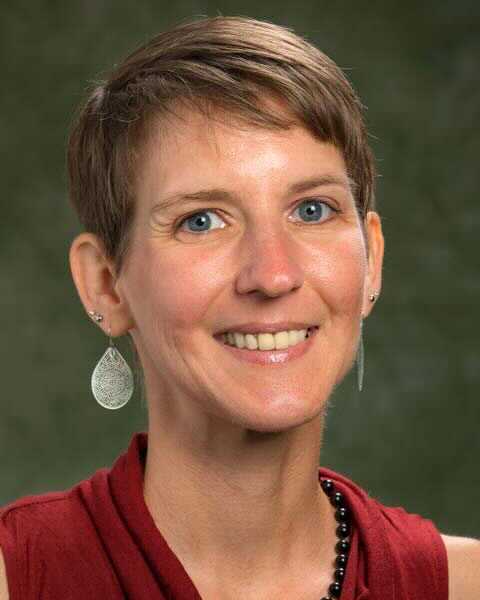
In an effort to investigate how we can foster science, technology, engineering and math (STEM) learning outside of the classroom, a Binghamton University professor has just been awarded a $1.5 million dollar grant.
The grant was awarded by the National Science Foundation to Amber Simpson, assistant professor in the department of teaching, learning and educational leadership (TLEL) at the College of Community and Public Affairs (CCPA), who has been continuously interested in how students learn. A former Tennessee high school math teacher, Simpson received a Ph.D. in curriculum and instruction, mathematics education at Clemson University in 2015. She has been a part of TLEL at BU since 2017.
In this project, Simpson will continue her research on young students in informal learning environments in order to see how educators can best respond to instances when a learner encounters difficulties and failures. The University of California at Berkeley defines informal learning as “organic, unstructured and learner-driven,” where learners can control activities in a low-stress environment. Simpson is looking to bring the more rigid, structured world of STEM outside of the classroom and into these informal learning spaces.
According to the software learning management system LearnUpon, any spontaneous learning — observing others, playing freely, looking up an unknown word — is informal learning. For example, makerspaces are informal learning environments that provide hands-on, creative and unstructured experimentation with various materials. After a postdoctoral position at Indiana University, where Simpson studied how tinkering as a child helps influence one’s interest in STEM, Simpson turned her focus toward informal learning.
“It was through this experience that my research interest shifted to understanding ways that STEM-rich informal spaces, [such as] makerspaces [and] home environments, support students’ development as STEM learners,” Simpson wrote in an email.
Simpson is focused on informal learning as a way to engage young audiences in STEM, which can be an intimidating field for some students.
“My goal in this research is to legitimize ways of doing and thinking about STEM outside of formal school contexts, particularly in the doing and thinking about mathematics, which is a subject often feared in school contexts,” Simpson wrote.
Observing informal learning environments has been an ongoing cross-country collaboration between Simpson, Alice Anderson, manager of audience research and impact at the Minneapolis Institute of Art, and Adam Maltese, Martha Lea and Bill Armstrong, chair for teacher education and professor in the School of Education at Indiana University. On a previous project, the group found that in order for learners to continue learning in the face of failure and reflection, the incorporation of emotional openness and knowledge of when to seek help into learning activities is a necessity.
Now, the team seeks to continue this vein of study by linking up with six museums spanning the United States: The Tech Interactive in California, The Bakken Museum and the Minneapolis Institute of Art in Minnesota, Thinkery in Texas, the Montshire Museum of Science in Vermont and the Scott Family Amazeum in Arkansas. These partnerships, according to Simpson, are to help in formulating a model for educators working in informal settings to help learners adapt to failures and develop resilience. Various partner sites will be hosting programs for informal learning this summer.
Andrew Osterhout, a graduate research assistant of the project and a first-year student within the educational theory, research and practice (Ed.D.) program, said creating relevance is what will propel STEM engagement among the youth.
“After being in education for a while — I think making any subject or topic feel relevant to learners’ lives is a key aspect in engagement in any educational experience,” Osterhout wrote in an email. “If I could, I would go back and tell myself to embrace and be more open-minded toward STEM subjects, even if I felt I wasn’t good or interested in them at the time — because I could still learn some cool skills that would be useful in my life and my future.”
Osterhout’s interest in mental health drew him to the project. He hopes that by studying how to best support learners confronting challenges, a professional development model can be created to support learners and retain students who may be intimidated by the STEM subjects.
“If I can make a small impact to help others build resilience, I find that fulfilling,” Osterhout wrote.


